In Kazakhstan
Date
17th June 2015
Dear All,
Last week, I had the good fortune of being invited to Kazakhstan. I was invited by the President, His Excellency Nursultan Nazarbayev, to attend the 5th Congress for Traditional and World Religions. I was asked to provide the Hindu perspective on Peace and Development.
The event was attended by many people, religious and political. President Nursultan Nazarbayev had invited the representatives of Islam, Christianity, Judaism, Hinduism, Buddhism, and others. Mr. Ban Ki Moon, the Secretary General of the UN, King Abdullah II of Jordan were also there, and I had the pleasure of meeting them as well.
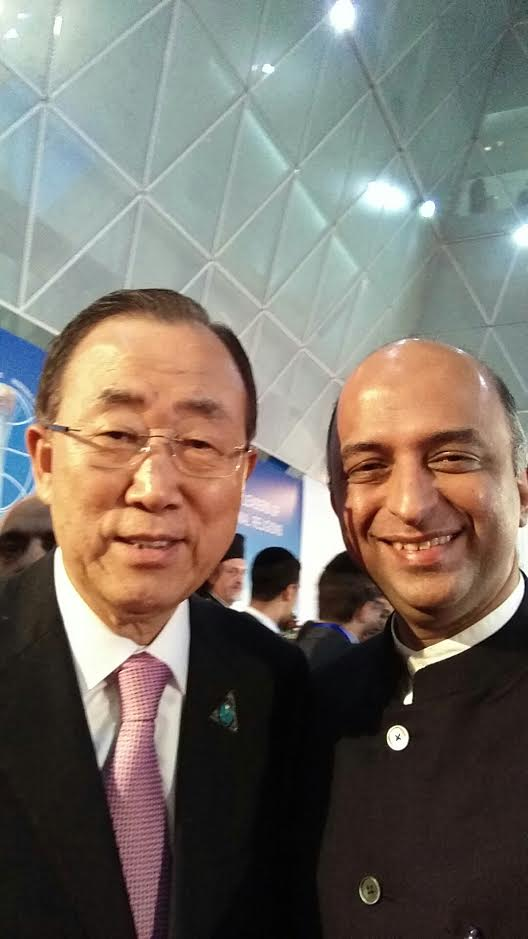
Kazakhstan is a wonderful country. It is only slightly smaller than India. Soon after they got their independence from the Soviet Union, Kazakhstan under their President Nazarbayev gave their arsenal of nuclear weapons to Russia. This was a very principled and a very practical move. And within the next few years, they resolved their boundary issues with most of their neighbours.
Kazakhstan is 80% muslim, and the rest are mainly Christian. The country has a nomadic culture. They love horses,music, and the outdoors. Like us in India, there are many ethnicities.The President places a high emphasis on peace and development, and he believes, that religion can play a constructive role in trying to foster this, and by asking people of different faiths to come together, they can realise that there are shared problems, and shared goals. and that we have more in common, that that which divides us.
My father, Dr. Shantilal K. Somaiya, who led Somaiya Vidyavihar and the Somaiya Trusts for many years before me, played an important role in these dialogues ever since they were established in 2003. The Baiterek is an important monument in Astana, their capital, and is as iconic to Kazakhstan as the Eiffel Tower is to Paris and France.
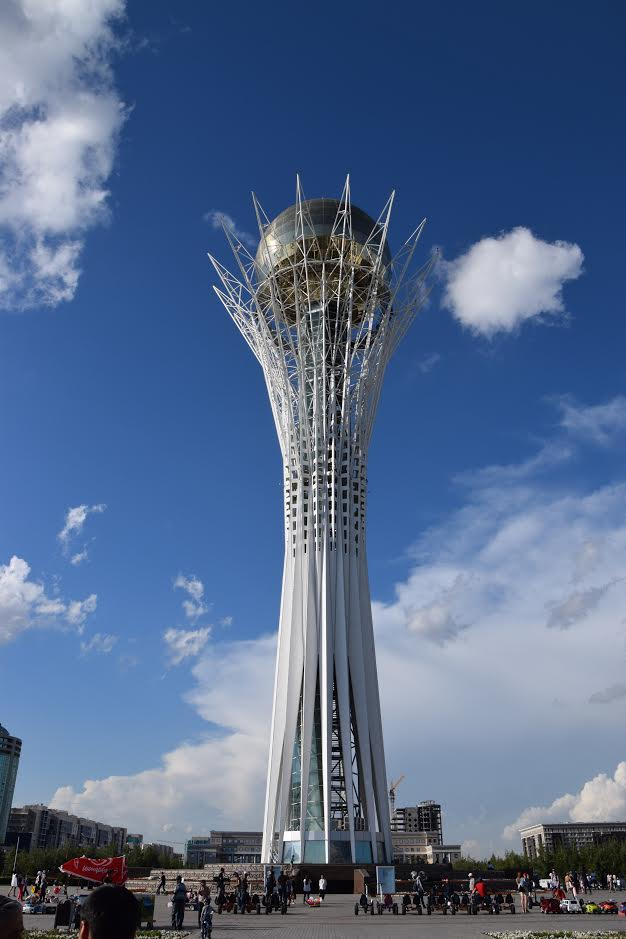
In this monument, at the very top, there is a wooden globe, with the signatures of a chosen few, to bless Kazakhstan.
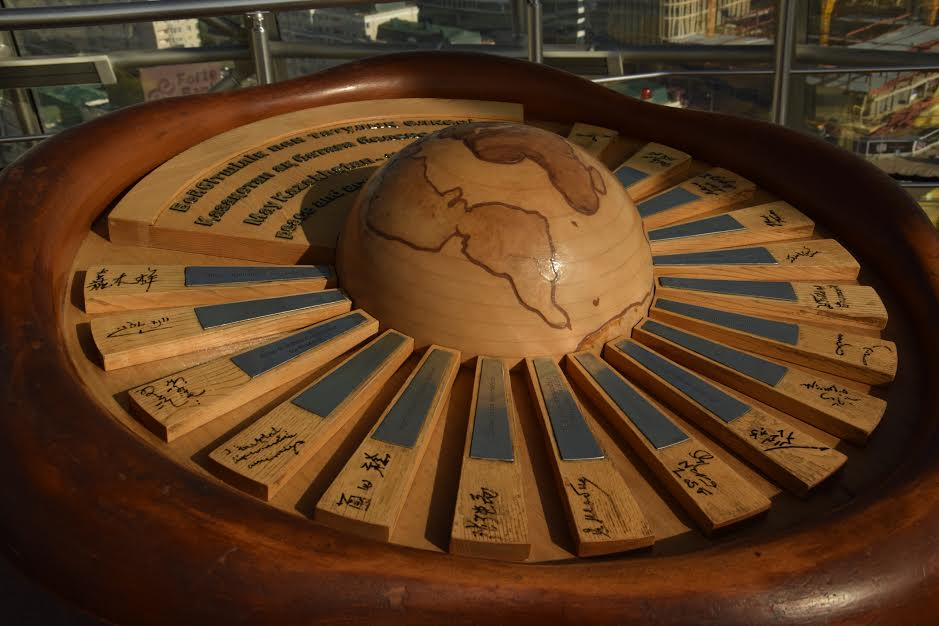
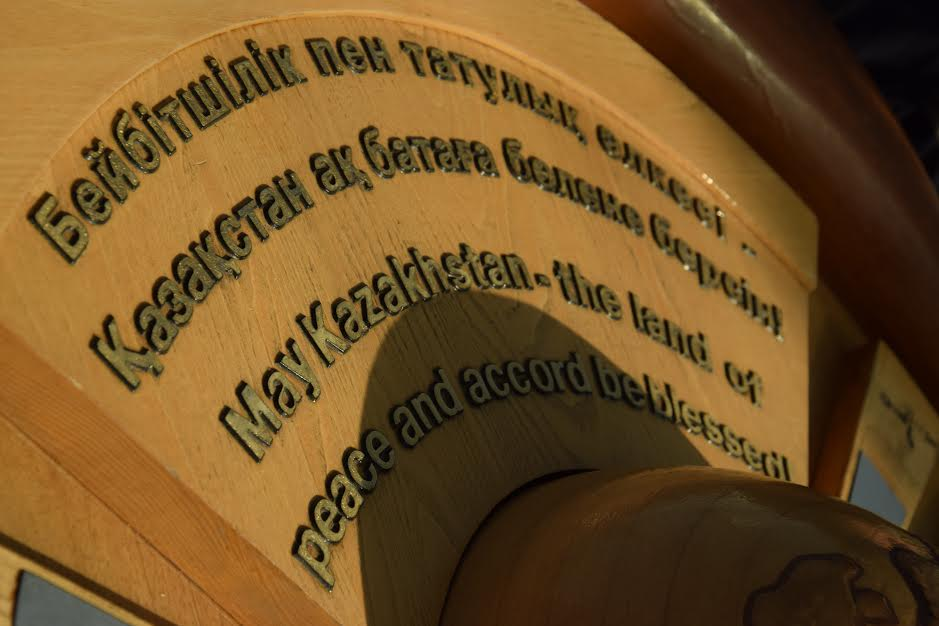
I am proud to say, and we should all be, that one of those signatures belongs to my father, Dr.Shantilal K. Somaiya, in recognition of his contribution to the field of interfaith understanding and dialogue,and his work towards the same in Kazakhstan.
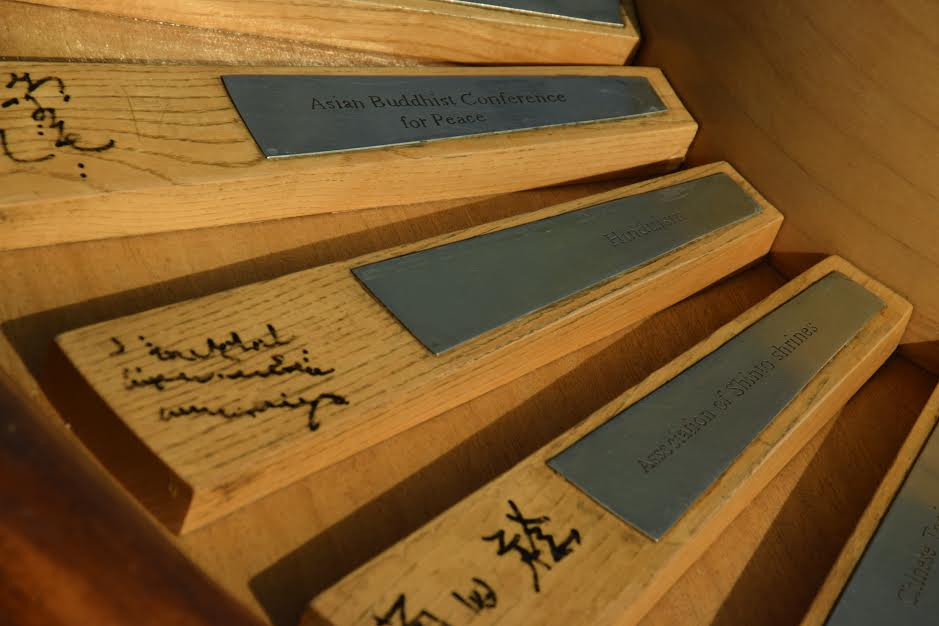
Dr. Kalaben Acharya, Director of the K. J. Somaiya Bharatiya Sanskriti Peetham, has been an active member of the Secretariat of this Congress, and her contribution to the cause is well appreciated.
I enclose a copy of the speech that I gave in Astana last week.
Dialogue of Religious Leaders and Politicians for Peace and Development
Samir Somaiya
Your Excellency President Nursultan Nazarbayev,
Your Excellency Kassym-Jomart Tokayev, leaders and representatives of World and Traditional Religions
It is my honour to provide a Hindu perspective.
Why don’t we have Peace and Development? Why is that development is accompanied by strife?
Mahatma Gandhi warned us against the 7 deadly sins
1. Wealth without Work
2. Pleasure without Conscience
3. Science without Humanity
4. Knowledge without Character
5. Politics without Principle
6. Commerce without Morality
7. Worship without Sacrifice.
I think that this is because, for peace to prevail, the pursuit of development must be accompanied by work, conscience, humanity, character principles, morality and sacrifice. And that these must be ingrained in our education systems.
Swami Vivekananda said, “We want that education by which character is formed, strength of mind is increased, the intellect expanded, and by which one can stand on one's own feet."
But education has become more now the teaching of a vocation, and not also the teaching of how to live a life. It must be both. We must teach how to earn, but also how to live, and how to share.
In Hinduism, there is the doctrine of the four purusharthas. Four ends which encompass all aspects of human life. The purusharthas are an answer to the question: ‘what then must I do?’ The reply is given first of all with the concept of Dharma, which means what I must do in relation to myself and to others. My actions have to be other-directed. In a manner in which they hold society together.
But development is necessary. The attainment of riches or worldly prosperity, Artha, mainly in the sense of getting the necessary material beings for a dignified way of life. But, as the Mahabharata says, only that wealth is truly wealth, which has been earned by righteous means. through Dharma. Otherwise, wealth and power separated from Dharma will be used a tools for exploitation. And fighting against this exploitation, against child labour and bondage is the reason why the Nobel Peace Prize was awarded to Mr. Satyarthi,(along with young Malala from Pakistan).
Under the imperatives of dharma we come across the third purushartha which is kama. It literally means desire. But desire is not meant to be limited to one’s own needs, but considering the wishes of everyone else. One’s needs come last. After caring for others in the society. We must desire for the happiness of all around us.
These first three purusharthas relate men and women with their earthly goals of life. However they are not reduced to this limited and material life since we, human beings, aspire to more. We are aware that there is something else, permanent, beyond this changing world, and this awareness is expressed in the desire for final liberation, which is the fourth of the purushartha: moksha. This liberation is really the losing of oneself. In surrender to the almighty, the dissolution of the ego, the letting go of oneself. Atman merging into the Paramatma.
Thus, the doctrine of the purusharthas is a development of the teaching that we are not isolated beings. And for this what is needed is a generous attitude that does not look only at its own greed but at the needs of everyone else. My grandfather Shri K. J. Somaiya, selected the motto ज्ञानादेव तु कैवल्यम् for our education complex which means: “Liberation is attained only through knowledge”. Man has to get liberated from greed, poverty and hunger. To make the life lived more meaningful one has to engage oneself in the service of one’s family, one’s community, one’s country and indeed the world. Only when this happens then peace would be achieved.
India is one of the world’s oldest civilizations and it has a population of 1.2 billion people, most them young people. The International Monetary Fund (IMF) has said that India's growth is expected to strengthen from 7.2% in 2014 to 7.5% in 2015.
We need to grow, to build up our human society in a just way. Thus, development should reach to all sectors of society. Our Prime Minister, Shri Narendra Modi spoke of his peace and the rights of all citizens of India, irrespective of their faith. He underlined that “culture must connect, not divide, our world and that it should be a bridge to greater respect and understanding between people”. He also said: “We shall judge our progress not just by the cold statistics of growth, but by the warm glow of belief and hope on human faces.” Development must be guided by the ancient values taught by the Indian seers and contained in the Hindu scriptures, why, in all scriptures, emphasizing not just mere economic prosperity but also spiritual growth.
And as Gandhi said, there is no path to Peace. Peace is the Path.
In the Hindu scriptures we find a quotation from the Yajurveda that is quite significant. It is a universal prayer for peace and it is known as Shantipath. It emphasizes the link between peace and harmony with all elements of nature:
“May there be peace in the heavens, peace in the atmosphere, peace on the earth. Let there be coolness in the water, healing in the herbs and peace radiating from the trees. Peace be to all the Gods! Peace be to Brahman! May everything in the universe be at peace. Let peace pervade everywhere, at all times. May that peace embrace me.”
द्यौः शान्तिरतिररक्षं शान्तिः पृथिवी शान्तिरापः शान्तिरोषधयः शान्तिव॔नस्पतयः शान्तिः॥विश्वदेवाः
शान्तिब्व॔ह्य शान्तिः सर्वं शान्तिः।शान्तिरेव शान्तिः॥सा मा शान्तिरेथधि॥
ॐ शान्तिःशान्तिःशान्तिः॥
Thank You
Samir Somaiya
See More Writings
-
Link to the images
25th December 2018
-
Staying safe and healthy
18th March 2020
-
Staying safe and healthy - 2
21st March 2020
-
Leading the Battle Against COVID-19
29th March 2020
-
Support to those affected by the pandemic
25th June 2021
-
Our Prime Minister's मन की बात
5th March 2022
-
Breathing new life at the K J Somaiya Health Centre at the Girivanvasi Pragati Mandal near Dahanu
12th March 2024
-
Somaiya Sports Academy - Eklavya
28th March 2024
-
On Opportunity and the difference a Goat made
28th February 2024


